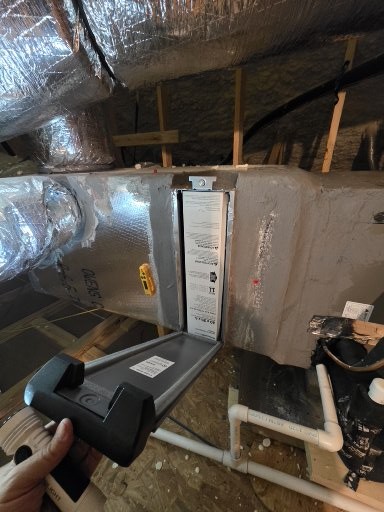Maintaining a comfortable and healthy home environment is a top priority for many, but did you know that something as simple as an air filter change can significantly boost your indoor air quality? For homeowners and renters alike, understanding your HVAC systems is essential not just for home maintenance, but also for enhancing energy efficiency and reaping the health benefits of clean air. Regular changes to your air filters can prevent allergens from circulating, making a world of difference for those sensitive to allergies and air quality issues. As a trusted advisor, I’m here to guide you through the steps that can transform your living space into a sanctuary of fresh air and peace of mind. Ready to breathe easier? Let’s dive into how this simple routine can make a big impact.
Importance of HVAC Systems
HVAC systems are the unsung heroes of our homes, working tirelessly to maintain comfort and air quality. Let’s explore their crucial role in our daily lives.
Role in Indoor Air Quality
HVAC systems play a vital role in maintaining healthy indoor air quality. These systems not only regulate temperature but also filter out pollutants, allergens, and other airborne particles.
By circulating and filtering air, HVAC systems help remove dust, pollen, and other contaminants that can trigger allergies or respiratory issues. This is especially important in urban areas or during high-pollen seasons.
Moreover, proper HVAC maintenance, including regular air filter changes, can significantly improve the air you breathe at home. Clean filters trap more particles, ensuring that the air circulating through your home is as clean as possible.
Enhancing Energy Efficiency
An efficient HVAC system can significantly impact your home’s energy consumption and, consequently, your utility bills. Well-maintained systems operate more smoothly, requiring less energy to heat or cool your home.
Regular air filter changes are a simple yet effective way to boost your HVAC system’s efficiency. Clean filters allow air to flow more freely, reducing the strain on your system and helping it operate at peak performance.
By enhancing energy efficiency, you’re not only saving money but also reducing your carbon footprint. It’s a win-win situation for both your wallet and the environment.
Benefits of Regular Air Filter Changes
Regular air filter changes are a simple maintenance task with far-reaching benefits. Let’s delve into why this small action can make a big difference in your home.
Health Benefits of Clean Air
Clean air is essential for maintaining good health, and regular air filter changes play a crucial role in achieving this. By trapping airborne particles, clean filters help reduce the risk of respiratory issues and allergies.
Improved air quality can lead to better sleep, increased cognitive function, and overall well-being. This is particularly important for individuals with existing health conditions or sensitive respiratory systems.
Furthermore, clean air can help reduce the spread of airborne viruses and bacteria, contributing to a healthier home environment for you and your family.
Allergies and Air Quality
For allergy sufferers, the link between air quality and symptom management is crucial. Regular air filter changes can significantly reduce the presence of common allergens in your home’s air.
Pollen, dust mites, and pet dander are just a few of the allergens that can be effectively trapped by a clean, high-quality air filter. By reducing these irritants, you may experience fewer allergy symptoms and enjoy a more comfortable living environment.
It’s important to note that different types of filters have varying levels of effectiveness against allergens. Consulting with an HVAC professional can help you choose the right filter for your specific needs.
Home Maintenance Tips
Maintaining your HVAC system doesn’t have to be complicated. Here are some practical tips to keep your system running smoothly and your air clean.
Scheduling Air Filter Changes
Establishing a regular schedule for air filter changes is key to maintaining optimal indoor air quality and HVAC efficiency. The frequency of changes can vary based on several factors.
As a general rule, most homeowners should change their air filters every 1-3 months. However, this can vary depending on factors such as:
-
Presence of pets
-
Number of occupants
-
Local air quality
-
Type of filter used
Consider setting reminders on your phone or marking your calendar to ensure you don’t forget this important maintenance task. Regular changes will help your system run more efficiently and extend its lifespan.
Choosing the Right Air Filters
Selecting the appropriate air filter for your HVAC system is crucial for maintaining air quality and system efficiency. There are several types of filters available, each with its own strengths and limitations.
MERV (Minimum Efficiency Reporting Value) is a rating system that indicates a filter’s effectiveness. Higher MERV ratings generally mean better filtration, but they can also restrict airflow if not compatible with your system.
Here’s a quick comparison of common filter types:
|
Filter Type |
MERV Rating |
Best For |
|---|---|---|
|
Fiberglass |
1-4 |
Basic dust filtration |
|
Pleated |
5-13 |
Allergens, mold spores |
|
HEPA |
17-20 |
Microscopic particles |
Remember, the most expensive or highest-rated filter isn’t always the best choice. Consult your HVAC manual or a professional to determine the most suitable filter for your system and needs.


